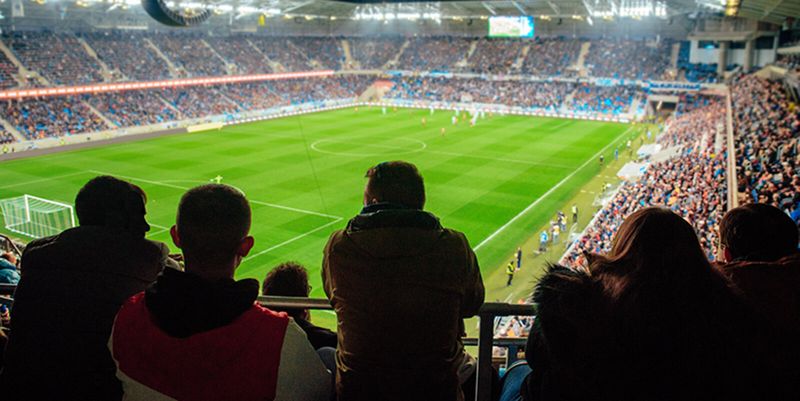
Football hooliganism has long been an issue for authorities, clubs, and fans. The violent and unruly behaviour of certain groups of fans not only discredits the sport but also poses serious safety risks. Efforts to solve the issue can include rehabilitation measures, community-based programs, stricter enforcement of the law, and promoting good fan culture.
Understanding Hooliganism
Hooliganism usually manifests as violent supporters’ behaviour, vandalism, and hostility on match days. It is not always just an exhibition of love for the sport; it is also motivated by deeper social issues such as economic hardship, marginalisation, and drug addiction. The UK Home Office recorded close to 2,000 arrests related to football during the 2024-2025 season, which indicates the severity of the problem.
Hooligans are most likely to be the loudest supporters and generate an electric atmosphere inside stadiums. Their slogans and acts of allegiance can motivate a team and players. But this fervent support easily turns into pandemonium when there is competition. It is imperative that this passion is channelled in a positive way so that the atmosphere is festive rather than aggressive.
The Role of Rehabilitation
One of the most critical measures to address hooliganism is to provide support via rehabilitation. Some football hooligans might be facing addiction issues, and this may drive violent behaviours. Through counselling and treatment, drug rehabilitation centres can assist individuals in socially rehabilitating and staying away from hooliganism.
In addition to rehabilitation, educational programs offered in such centres can further address the impact of drug abuse on mental health and behaviour, so that it can be realised even better as to how substance abuse is causing violence in sports. Tackling the root cause of hooliganism, we can begin to shatter the cycle of violence that plagues football.
Community Engagement Initiatives
A further useful strategy is to launch community participation programmes that foster strong bonds between clubs and supporters. Football clubs have to involve supporters in decision-making processes and involve them in community outreach programmes. This can include staging events on the basis of inclusiveness, respect, and fair play.
For instance, clubs can have workshops that educate fans on the importance of respect when watching matches. By instilling a spirit of ownership among fans, clubs will be in a position to create an atmosphere in which hooliganism cannot find easy terrain. By facilitating collaboration between fans and law enforcers through community activities, one can also help bridge the divide between the two groups, where tensions are managed and a spirit of cooperation is fostered.
Although community participation is vital, this must be supported by firmer policing of existing laws. The authorities have to crack down on hooliganism, ensuring that individuals who take part in violent behaviour are treated accordingly. This could involve increased vigilance during matches, more strict vetting of ticketing sales, and utilisation of banning orders for persistent offenders.
Secondly, there is a need for cooperation between clubs, police, and local authorities to devise coordinated strategies against hooliganism. By sharing information and resources, the stakeholders will be better placed to identify potential troublemakers and act before violence erupts.
Promoting Positive Fan Culture
Finally, promoting good fan culture is key to the prevention of hooliganism. Clubs should actively reward and acknowledge good fan behaviour through awards for incentives that encourage supporters to develop positive rather than harmful behaviour. Initiatives such as awards for sportsmanship, community service, or artistic expressions of support can help to reshape the narrative that concerns fan culture.
Furthermore, the promotion of good fan tales on social media can help redefine the way football fans are viewed by the general public. Portraying the vast majority of supporters who attend games in order to have enjoyment and support their teams without resorting to violence, the clubs can create an alternative to the hooligan brand.
Hooliganism in football is a complex phenomenon that requires an eclectic solution. By offering help, talking to fans, implementing the law, and promoting positive fan culture, we can create an environment where passion for the sport does not translate into violence. Even though the journey to a change is not smooth, the joint action of clubs, authorities, and fans can usher in a more secure and pleasant experience for all involved in the beautiful game. With cooperation and determination, we can make football a sign of joy and unity and not an origin of conflict and aggression.








